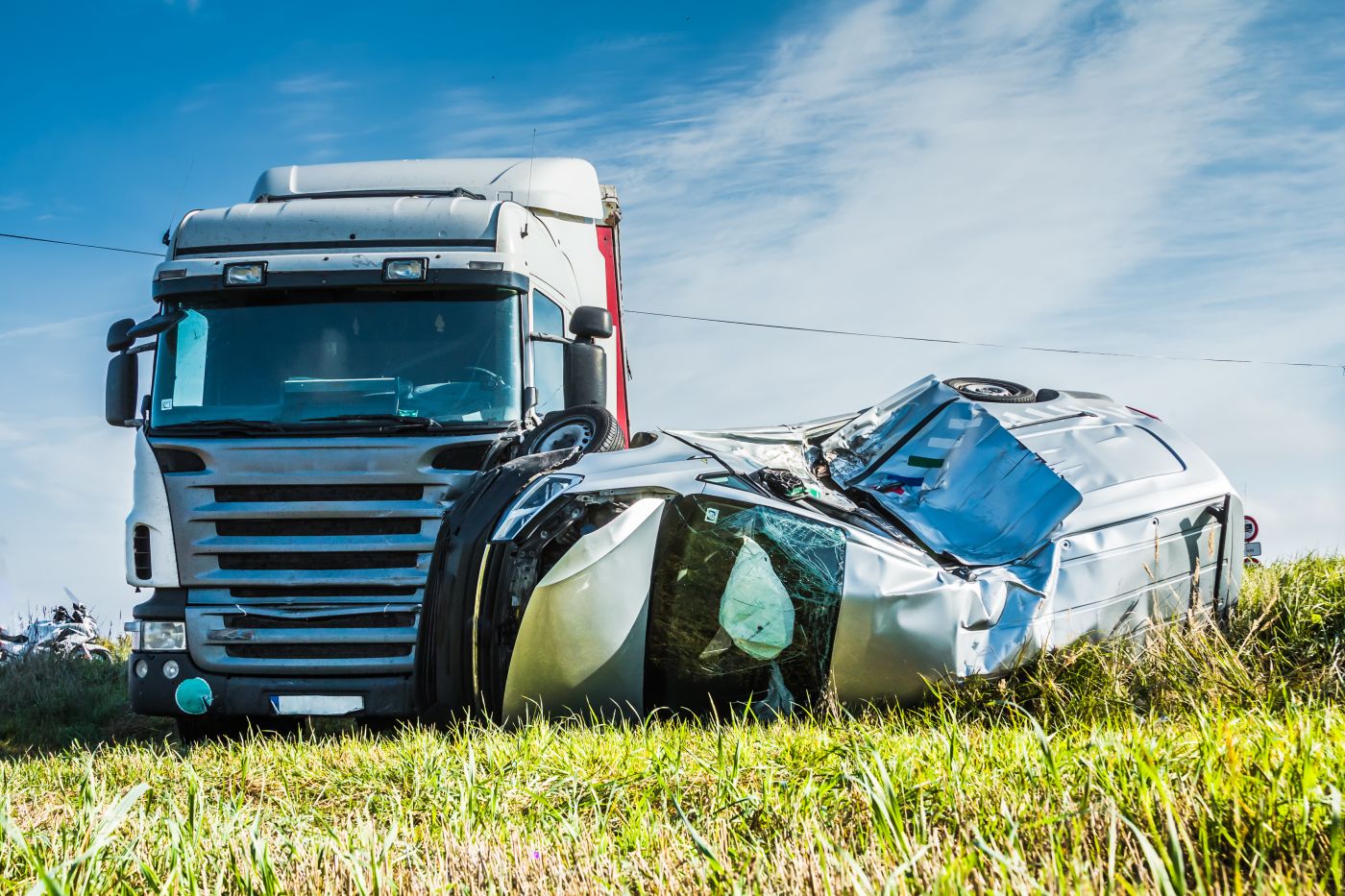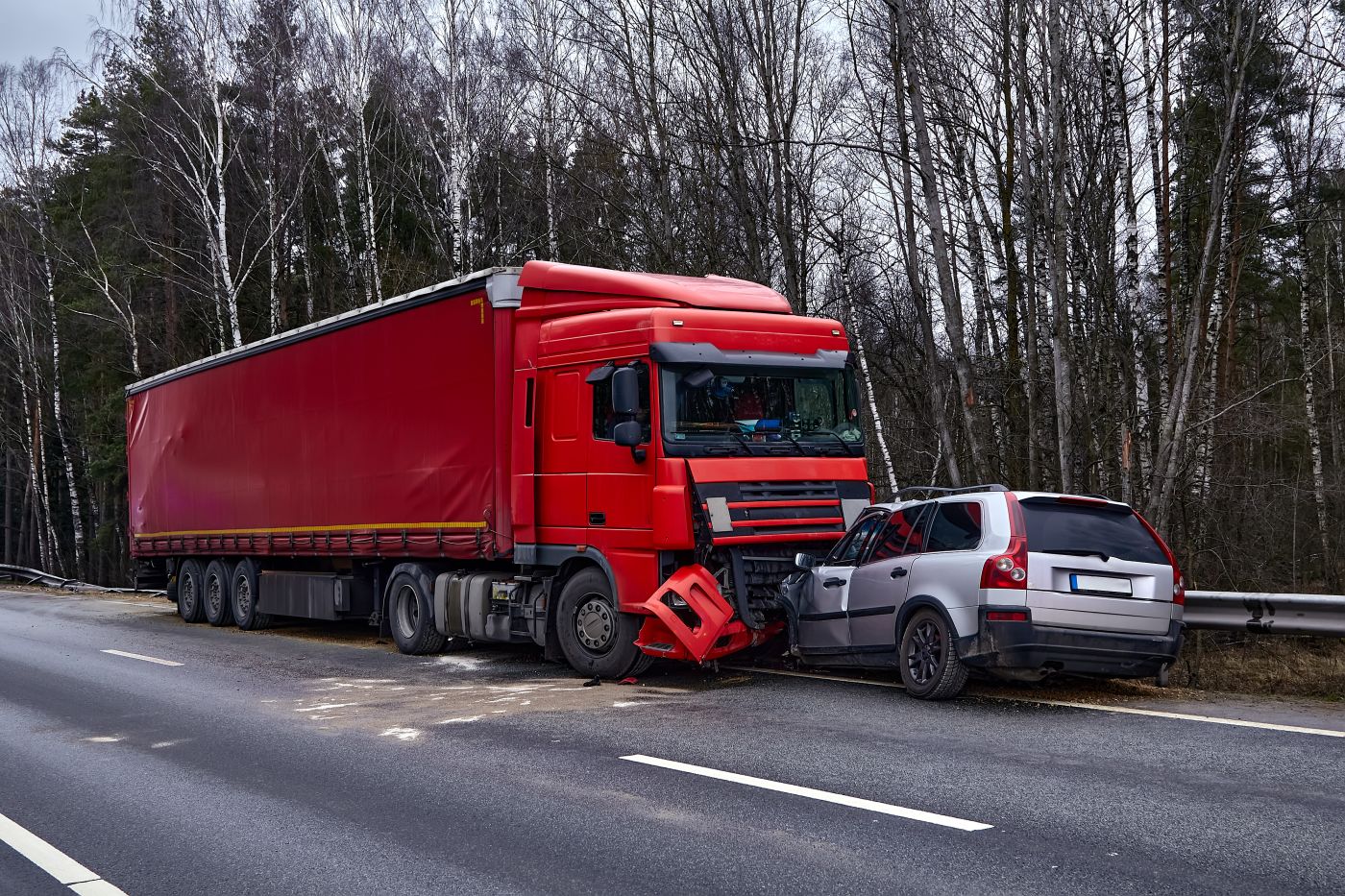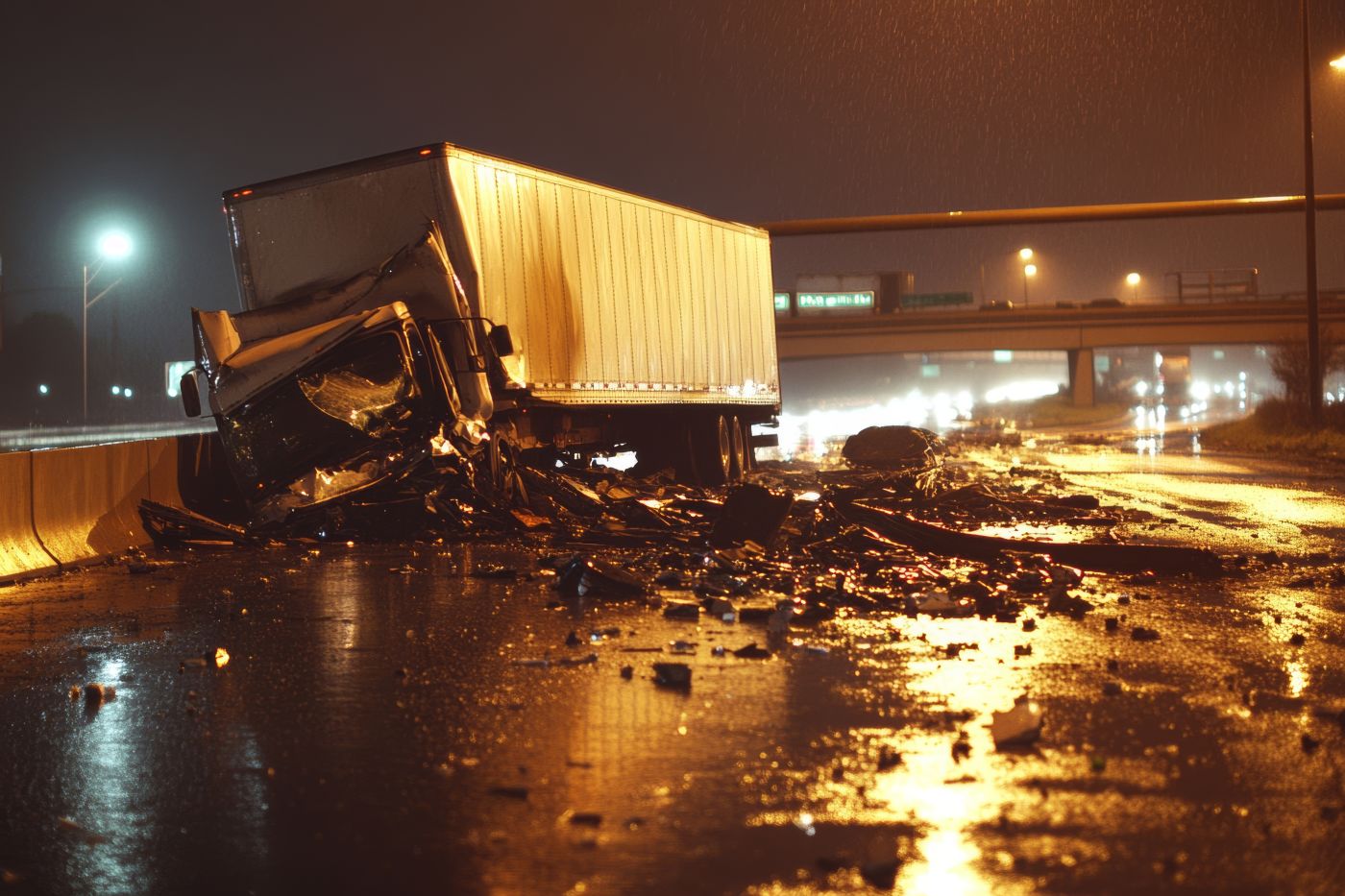
Determining liability in a trucking accident isn’t always simple. Multiple parties may share responsibility, including the truck driver, the trucking company, or even the manufacturers, and each party involved may carry different levels of liability.
At Harris & Hart, Attorneys at Law in Overland Park, Kansas, we know how challenging these cases can be. Whether it’s the truck driver’s actions, the company’s policies, or a defect in the vehicle, understanding the specifics is key.
Below, we’ll break down the key factors that can help determine liability in trucking accidents and who might be held accountable.
What to Know About the Truck Driver’s Liability in an Accident
In a trucking accident, the truck driver is usually the first person considered when determining liability. The driver is directly responsible for operating the vehicle, and in many cases, their actions or negligence can lead to an accident. However, just because the driver was behind the wheel does not necessarily mean they’re the only party at fault.
Common Causes of Driver Negligence
There are several ways in which driver negligence can contribute to a trucking accident. Some of the most common include:
Distracted driving: Like all drivers, truck drivers can be distracted by their phones, GPS systems, or even eating and drinking while driving. These distractions can result in dangerous accidents.
Fatigue: Truck drivers are often on the road for long stretches, and fatigue can significantly impair their driving ability. A fatigued driver may have slower reaction times or fall asleep at the wheel, leading to a crash.
Speeding: Commercial trucks are large and require more time to stop or maneuver, making speeding especially dangerous. If a truck driver exceeds the speed limit, it can increase the chances of a collision.
Substance use: If a truck driver is under the influence of drugs or alcohol, they could cause an accident due to impaired judgment and coordination.
In these cases, the truck driver may be held liable for the accident, especially if their actions were directly responsible for the crash.
What If the Truck Driver Isn’t Entirely at Fault?
There are situations where the truck driver may not be fully at fault. If the driver was pressured by their employer to drive longer hours or violate safety regulations, the trucking company could also be held liable.
Additionally, if the truck's equipment malfunctioned, the manufacturer could share responsibility. In these cases, the investigation into the cause of the crash will determine which party is liable.
The Trucking Company’s Responsibility
The trucking company that employs the driver may also be liable for the accident, even if the driver was at fault. This is due to vicarious liability, which holds employers responsible for employee actions while they’re performing their job duties.
There are several ways a trucking company can be held accountable for a crash, including:
Negligent hiring or training: If a trucking company hires a driver with a history of unsafe driving practices or fails to properly train them, the company may be found liable for accidents caused by that driver.
Failure to maintain trucks: Trucking companies are responsible for making sure that their fleet of vehicles is properly maintained. If an accident occurs because the truck was in disrepair or had a known mechanical issue, the company may be held responsible.
Violation of federal regulations: The trucking industry is heavily regulated by federal and state laws, including hours-of-service rules, weight limits, and vehicle maintenance standards. If a trucking company encourages or allows its drivers to violate these regulations, it can be held liable for accidents that result.
If a trucking company is found negligent in any of these areas, it may be held accountable for damages caused by the accident.
Liability of the Manufacturer in a Trucking Accident
In some trucking accidents, the manufacturer of the truck or its components may be liable for the crash. If a defect in the design or manufacture of the truck contributed to the accident, the manufacturer can be held responsible under product liability laws.
In cases involving defective truck components or systems, a thorough investigation is crucial to determine whether a manufacturing defect contributed to the accident. This may involve gathering expert testimony from professionals in the field of vehicle design and manufacturing, as well as conducting in-depth testing to identify potential defects.
Common Manufacturing Defects That Lead to Accidents
When a manufacturer is found liable for a trucking accident, it’s usually because a defect in the vehicle’s design or a failure in the manufacturing process caused the truck to malfunction in a way that led to the crash. Manufacturers may be liable for several types of defects that can contribute to a trucking accident, including:
Defective brakes: If the truck's brakes fail due to a manufacturing defect, the manufacturer may be responsible for the accident.
Tire blowouts: Faulty or improperly manufactured tires can blow out while a truck is on the road, causing a crash. The tire manufacturer may be held accountable for such incidents.
Engine or transmission failure: If a failure in the truck’s engine or transmission causes the driver to lose control of the vehicle, the manufacturer may be responsible for producing a faulty component.
Inadequate safety features: If a truck lacks proper safety features or has a design flaw that contributes to an accident, the manufacturer could be held liable for the resulting damages.
Manufacturers are required to provide safe and reliable products. If a defect or malfunction in a truck causes an accident, the manufacturer could be held responsible for damages under product liability laws.
How Is Responsibility Determined?
Determining responsibility in a trucking accident can be complicated as multiple parties may share liability. Factors such as the cause of the crash and the actions of the driver, trucking company, or manufacturer need to be considered. Determining who’s ultimately responsible can depend on several factors:
The cause of the accident: Was it due to driver error, vehicle malfunction, or unsafe company practices? Identifying the cause helps determine who is at fault.
Evidence of negligence: Was the driver, company, or manufacturer negligent in their duties? Negligence can involve speeding, failure to maintain the vehicle, or using faulty parts.
Multiple parties involved: Sometimes, more than one party shares responsibility. For example, a driver might cause the accident, but the company could be liable for poor maintenance.
It’s important to have a thorough investigation into the accident to determine all parties involved and make sure the proper party is held accountable.
Why Legal Representation Is Crucial in Trucking Accident Cases
Trucking accident cases can be intricate, involving multiple parties, laws, and regulations. Having an experienced lawyer to investigate the case, gather evidence, and build a strong argument for your claim can make a huge difference in the outcome. Attorneys understand the nuances of trucking laws and are skilled at identifying all potential sources of liability.
An attorney can also negotiate with insurance companies, fighting for you to receive fair payment. A lawyer can fight for a fair settlement that covers your medical bills, lost wages, pain and suffering, and other damages.
Contact Us Today
Need help with a trucking accident? Contact our attorneys at Harris & Hart, Attorneys at Law. We serve people in Kansas City, Lee’s Summit, Independence, Overland Park, and surrounding counties in Missouri and Kansas, including Jackson, Cass, Clay, Platte, Johnson, Ray, Leavenworth, Linn, Miami, Wyandotte, and Douglas counties.



